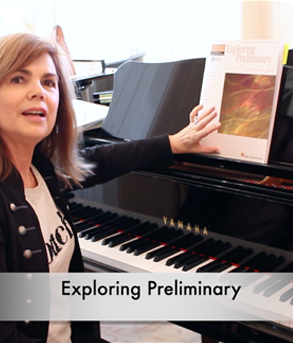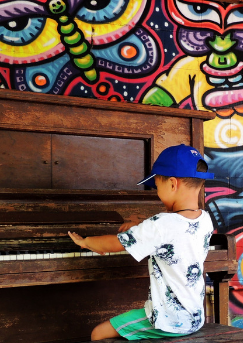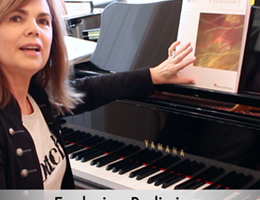
- Dec 13, 2018
- - 0 comment
HOW TO MAKE PRACTICE A HABIT
Why?
When we have established a habit of practice it just becomes automatic. It’s built into our routine and becomes part of the ebb and flow of our lives. We establish habits all the time; good habits and bad habits. The key to achieving any long term goal is to establish good habits that move us closer to our outcome every day. And the best thing is for learning a musical instrument is; you don’t even have to do it every day! THREE or FOUR focussed practice session a week will get you there.
Angela Duckworth, in her bestselling book Grit argues: “When you have a habit of practising at the same time and in the same place every day, you hardly have to think about getting started. You just do it.”
Duckworth sees the ability to stick to a routine when learning something new and difficult – such as playing the piano – as a means of strengthening our sense of grit. And her research showed that having grit was the defining factor is assessing what made the key difference in success in even very talented individuals. It wasn’t ‘talent’ but the ability to knuckle down and keep going that won out in the end.
Gillian Erskine, Mum of two, shares her experience of nurturing children through the ups and downs of learning music that's par for course for any long time interest. Gillian has a unique multi faceted perspective on music teaching having taught piano for a number of years before going on to be the, co-creator of Forte School of Music's unique teaching pedagogy and music courses and having a large thriving music school of her own. Gillian shares her understanding and tips from having experienced the roles of parent, teacher and music school owner.
Studies show when we undertake an activity that requires us to pay attention – such as learning a musical instrument – approximately half of us will become distracted. Our minds tend to wander. We find it hard to focus and to concentrate.
How to go about forming a habit?
Studies show that it is the combination of having a trigger, being focussed on the task at hand and feeling the reward or success that comes with achievement that helps establish a habit.
Trigger
Find the time that works best for you and set off the trigger to establish your routine. Many people find morning sessions work well. Most of us are bright and alert after a good night’s sleep.
Research shows that there is greater success in establishing a habit when you piggy-back a new habit onto another series of established habits, such as your morning or afternoon routine.
Every day, you need to initiate the trigger. This might be a time alarm, reminder on your phone, simply sitting in your practice space or any trigger that will signal the practice behaviour.
We all have a natural reward-based learning process wired into our brains. A trigger initiates the behaviour and this leads to a reward. If you apply this to establishing a practice routine, you will have a greater chance of success.
Mindful Behaviour
When you commit to making small, sustainable changes, they are more likely to stick. Short, frequent practice sessions promote progress.To create a new habit, research tells us that you need to commit to the new behaviour every day for thirty consecutive days. After thirty days, it’s much more likely that your new routine will stick.
To remain engaged and mentally focussed, you need to be curious about the behaviour, be mindful of exactly what you are doing. Most importantly, you need to feel great about the experience of your practice. Manage your experience from moment to moment.
Reward
Practice is not about how long you spend at your instrument. It’s what you achieve when you are there and how great that makes you feel. Forget time-based practice sessions. Direct your focus towards small, achievable goals, being mindful of the physical process of playing and, most importantly, feeling excited about and celebrating your achievements.
When we focus our attention and are mindful of what we are doing, we will sense the joy of achievement. These emotions reinforce the reward centre of the brain. Seeing what you achieve in your practice sessions from your behaviour makes you understand its value and that’s reward in itself.
The greater satisfaction of performing and receiving applause is a reward. The praise and pride parents show or say about a child’s work resonates very deeply and is a very important reward which can often make the difference between continuing or not. Of course there’s the additional rewards (bribes) that we all resort to on occasions, when it seems like we need something extra. The benefits can be powerful but they are best used for a short term shot in the arm so bring these out occasionally when you need to reset or just have to get through.
The key point is to make the journey fun. View practice as just part of life and get on. One of the best lessons that I learnt from my childhood music is that a little of effort every day or so week after week, month after month adds up to a huge achievement.
 Login
Login









